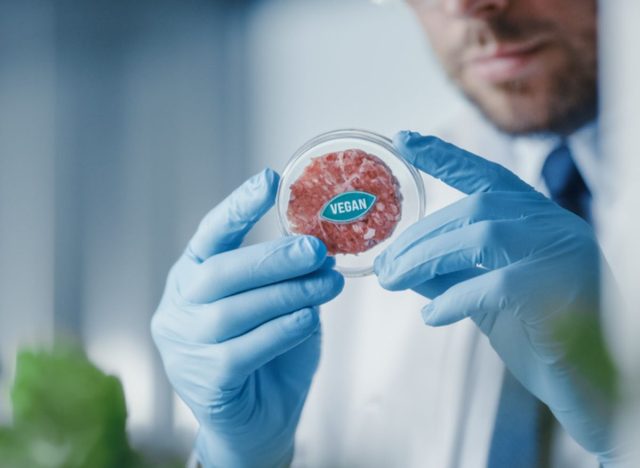Are Plant-based Meat Alternatives Really Healthier Than Meat?

Over recent years you have likely seen an explosion of meat alternatives on the market, from burgers, to “chicken” strips, sausage, and more, there are more plant-based meat alternatives available than ever before. Compared to meat-based products, these alternatives often have nearly identical amounts of protein, and contain essential nutrients, like iron and B vitamins. While these alternatives add variety and nutrients to a plant-based diet, if you are open to eating meat, that may be a better source of nutrition.
Plant-based meat alternatives are considered to be “processed” foods

While some plant-based meat alternatives contain essential nutrients not found in animal meat, like fiber, these products typically contain more ingredients than their animal counterparts and are considered to be a processed food.
For example, you may see ingredients like methylcellulose and carrageenan in these foods. These ingredients do not have intake limits associated with them, and can therefore be consumed as part of a healthy diet. However, because of the conflicting research outcomes related to these ingredients, and their controversial nature, it may be best to limit them as much as possible.
Additionally, many alternatives are made from soy, an ingredient some may be allergic to, and also contain gluten, another common allergen.
Plant-based vs. animal meat nutrients
An additional concern to consider with alternative meats is the bioavailability of their nutrients. While these products do contain many of the same vitamins and minerals found in animal meat, because they are plant-based, they are not absorbed and utilized in the body at the same rate as equal amounts of animal-based nutrients.
For example, while we may absorb 25-30% of the animal-based iron we consume, we only absorb 1-10% of plant-based iron. Similarly, zinc from plant-based sources is also less bioavailable than animal sources.
These plant-based meat alternatives provide a source of essential nutrients for those who prefer not to eat meat; however, when compared to animal meat, a lower percentage of nutrients is actually absorbed and utilized in the body.
There is at least one thing that plant-based meats have that animal meat is low in: sodium. You’ll find higher amounts of sodium in meat alternatives compared to animal meat. For example, one Meatless Farm Plant-Based Burger patty contains 540 milligrams of sodium, the equivalent of 23% of your daily recommended intake, while a frozen beef patty from BUBBA Burger contains 85 milligrams of sodium.
Should you eat plant-based meat alternatives?
The availability of meat alternatives is beneficial to consumers as it provides important nutrients to those who may have more limited food options due to dietary preferences, like following a vegan diet. While this population may benefit from having these options available, someone who is open to eating animal-based products may be better off sticking with those items more often than trading them for plant-based alternatives.
A well-rounded diet that contains animal and plant-based foods, and is also centered on minimally processed options, can provide a wide variety of essential nutrients with minimal questionable ingredients.
While plant-based alternatives can be a source of nutrition in your balanced diet, they shouldn’t be considered superior to meat-based options.









